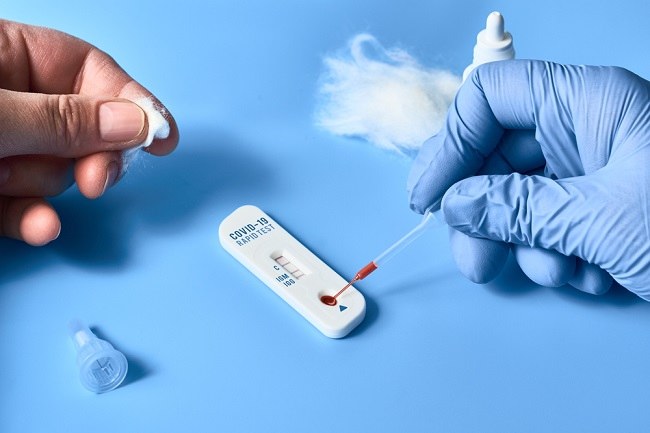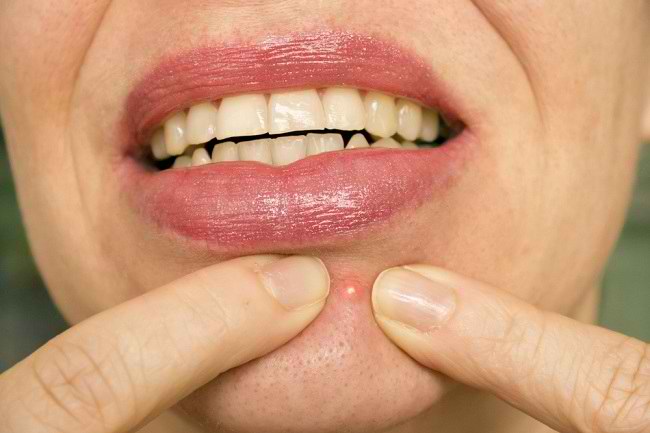Toxoplasma infection or toxoplasmosis is often considered a frightening disease for pregnant women, especially those who have pets or often interact with animals. This disease can cause serious harm to the fetus in pregnant women.
Cats are often accused of being one of the main transmission agents for toxoplasma. Though the transmission was not only from cats, but also from several other types of animals. Understanding the transmission of toxoplasma and how to deal with it can help pregnant women prevent the transmission of toxoplasma.

Important Things to Know about Toxoplasma Infection
Toxoplasma infection or toxoplasmosis is an infection caused by a parasite Toxoplasma gondii. These tiny organisms can live on cats. Toxoplasmosis infection is actually quite rare. Usually this infection can be transmitted to humans in several ways, including:
- Contact with infected cat feces.
- Contact with soil contaminated with cat feces.
- Eating raw or undercooked meat, unwashed fruits and vegetables, and unpasteurized cheese or milk.
- Using cooking utensils used to process raw meat without washing it.
- Consuming contaminated water.
Toxoplasma infection can occur when contaminated hands touch the eyes, mouth, or nose. Even so, not necessarily those who keep cats and are exposed to this parasite directly get toxoplasma infection. Because, this infection will not spread easily in people with strong immune systems.
Women who experience toxoplasma infection about 6-9 months before becoming pregnant, generally have formed immunity and are not at risk of passing this infection on to the fetus. In contrast to women who get this infection while pregnant, because of the risk of transmitting the infection to the fetus through the placenta.
Therefore, everyone should remain vigilant and always take precautions. The risk of this infection is very dangerous for the health and development of the baby. Toxoplasma infection can cause visual impairment, learning difficulties, brain disorders in the form of hydrocephalus, and hearing loss.
In certain cases, this infection causes some infected babies to only survive a few days after birth. Pregnant women who are most at risk of contracting toxoplasma infection are those who have weak immune systems and often interact with wild animals.
Transmission of this infection is generally characterized by several symptoms such as fatigue, headaches, general symptoms that accompany the flu, and muscle aches. But some people may not feel any symptoms. To determine the possibility of contracting this infection for sure, pregnant women who are at risk of infection are recommended to undergo a blood test.
How to Avoid Toxoplasma Infection
Before being infected, there are several ways that can be done to reduce this risk, including:
- Wash your hands after outdoor activitiesWashing your hands after activities in open public places, such as parks and sandy playgrounds, can help reduce the risk of infection. Try not to come into direct contact with potentially infected animals, including pets. Don't forget, you also have to wash your hands before and after processing food.
- Washing food and cooking utensilsAlways wash fruits and vegetables before processing and consuming them. In addition to washing, it is also recommended that fruits and vegetables be peeled to reduce the risk of infection. In addition, washing and cooking all frozen foods thoroughly before consuming them can help reduce the risk of infection. After that, wash all cooking utensils in the kitchen after using it to process raw meat.
- Avoid eating raw foodAvoid consuming raw or undercooked meat and eggs during pregnancy. Make sure the meat is cooked to the right temperature. Ripe meat has a clear liquid or gravy and the meat is not pink. In addition, you should avoid consuming goat's milk that has not gone through the pasteurization process or consume products made from similar milk.
- Keeping clean every dayTo prevent transmission of infection, try to always wear gloves when you garden or tend to plants. Then wash your hands with soap and warm water. Always keep the environment around the place of residence clean, so as not to get sick easily.
Beware of the Risk of Transmission of Infection from Cats
Cats can become infected with the Toxoplasma parasite if they eat an infected wild animal or come into contact with the feces of another infected cat. Once infected, the parasites can multiply in the cat's intestines, then produce feces that cause infection. Mild diarrhea and loss of appetite are common symptoms for cats infected with toxoplasma.
If you are pregnant and have or live with a cat, there are several things to consider, including:
- Clean cat litter every day
The first step you can take to prevent infection is to clean cat litter every day. It's a good idea to wear gloves when cleaning cat feces. After that, wash your hands thoroughly. If possible, better ask someone else to take care of the cat
- Give the cat dry food in a package
Packaged or canned dry food is safer for cats than raw meat. Infected raw meat can cause toxoplasma infection in cats and pose a risk of transmitting it to humans. Most importantly, don't forget to wash your hands afterward.
- Keep cats away from the kitchen and foodTry to keep cats out of kitchens and family dining areas to reduce the risk of cats touching your food. In addition, keep your footwear and all family members out of the reach of the cat so that it is not used as a bed or a place to urinate.
- Don't touch the stray catTry not to touch stray cats while pregnant. If your family has a sand play area outside, cover the area to prevent stray cats from defecating there.
In order to avoid transmission of toxoplasma infection during pregnancy, you can check yourself before becoming pregnant. If the infection occurs during pregnancy, immediately consult a doctor for proper treatment. Don't forget to keep your pets healthy and avoid contact with wild animals.









